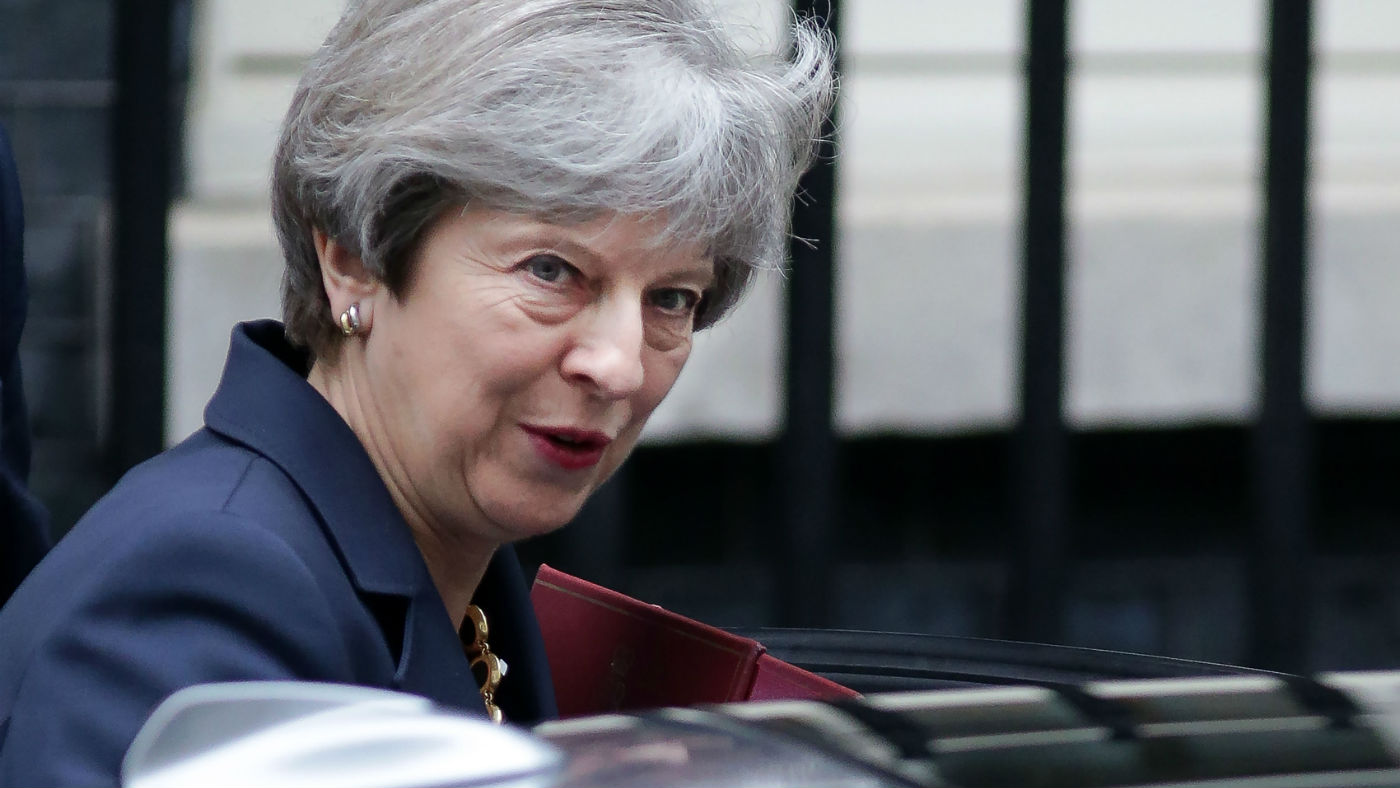Brexit: what ‘no customs union’ means for the UK
Crunch week ahead as Tories finalise Brexit policies

A free daily email with the biggest news stories of the day – and the best features from TheWeek.com
You are now subscribed
Your newsletter sign-up was successful
Downing Street says Britain is “categorically” leaving the customs union post-Brexit - a statement viewed alternately as a salve to calm backbenchers over UK-EU ties, or as a red flag for Tory mutineers.
No. 10’s insistence that the UK has ruled out a customs union - essentially a trade agreement where EU members charge the same import tax - follows what Politico’s Jack Blanchard describes as “days of increasingly bitter squabbling within the Tory party”.
Hard Brexiteers warn that staying in a customs deal with the EU will prevent the UK from negotiating future trade deals. Soft Brexiteers argue that severing ties will damage the economy. Theresa May seems likely to propose a middle ground - either a customs partnership or a highly streamlined customs arrangement.
The Week
Escape your echo chamber. Get the facts behind the news, plus analysis from multiple perspectives.

Sign up for The Week's Free Newsletters
From our morning news briefing to a weekly Good News Newsletter, get the best of The Week delivered directly to your inbox.
From our morning news briefing to a weekly Good News Newsletter, get the best of The Week delivered directly to your inbox.
A Downing Street source told HuffPost’s Paul Waugh: “The key point, as the PM said about 15 times last week, is we need to have freedom to sign trade deals.”
The Financial Times says a new “customs partnership” would reduce the need for a customs border, but warns it would take years to develop the technology to make the system workable.
For now, The Times’s Sam Coates says, a compromise is being prepared for a time-limited extension to elements of the existing customs union.
But it might be too little, too late for ultra-Brexiteers, according to the New Statesman’s Stephen Bush. “As far as customs go, the British government has already agreed a very close degree of alignment with EU regulation if its promises on the Irish border mean anything,” Bush says.
A free daily email with the biggest news stories of the day – and the best features from TheWeek.com
Leaving the customs union would mean mandatory customs checks for every lorry between the UK and EU until a free trade deal is struck with Brussels, The Sun reports.
It could also mean a hard border between Northern Ireland and the Republic - physical infrastructure and vehicle spot checks that could stir up sectarian violence again, after almost 20 years of peace under Good Friday Agreement, warns The Irish Times.
The customs debate comes at the start of a crucial week of negotiations. May and Brexit Secretary David Davis meet EU chief negotiator Michel Barnier today, before May’s Brexit war cabinet sit down on Wednesday and Thursday to thrash out an agreed position on post-Brexit trade and customs.
-
 The 8 best TV shows of the 1960s
The 8 best TV shows of the 1960sThe standout shows of this decade take viewers from outer space to the Wild West
-
 Microdramas are booming
Microdramas are boomingUnder the radar Scroll to watch a whole movie
-
 The Olympic timekeepers keeping the Games on track
The Olympic timekeepers keeping the Games on trackUnder the Radar Swiss watchmaking giant Omega has been at the finish line of every Olympic Games for nearly 100 years
-
 How corrupt is the UK?
How corrupt is the UK?The Explainer Decline in standards ‘risks becoming a defining feature of our political culture’ as Britain falls to lowest ever score on global index
-
 The Mandelson files: Labour Svengali’s parting gift to Starmer
The Mandelson files: Labour Svengali’s parting gift to StarmerThe Explainer Texts and emails about Mandelson’s appointment as US ambassador could fuel biggest political scandal ‘for a generation’
-
 Reforming the House of Lords
Reforming the House of LordsThe Explainer Keir Starmer’s government regards reform of the House of Lords as ‘long overdue and essential’
-
 How long can Keir Starmer last as Labour leader?
How long can Keir Starmer last as Labour leader?Today's Big Question Pathway to a coup ‘still unclear’ even as potential challengers begin manoeuvring into position
-
 Three consequences from the Jenrick defection
Three consequences from the Jenrick defectionThe Explainer Both Kemi Badenoch and Nigel Farage may claim victory, but Jenrick’s move has ‘all-but ended the chances of any deal to unite the British right’
-
 The high street: Britain’s next political battleground?
The high street: Britain’s next political battleground?In the Spotlight Mass closure of shops and influx of organised crime are fuelling voter anger, and offer an opening for Reform UK
-
 Biggest political break-ups and make-ups of 2025
Biggest political break-ups and make-ups of 2025The Explainer From Trump and Musk to the UK and the EU, Christmas wouldn’t be Christmas without a round-up of the year’s relationship drama
-
 The MAGA civil war takes center stage at the Turning Point USA conference
The MAGA civil war takes center stage at the Turning Point USA conferenceIN THE SPOTLIGHT ‘Americafest 2025’ was a who’s who of right-wing heavyweights eager to settle scores and lay claim to the future of MAGA